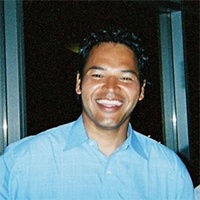Rice County, MN DUI-DWI Lawyers
Not enough matches for Rice DUI-DWI lawyer.
Below are all Rice lawyers.
Jonathan Kim Reppe
✓ VERIFIEDCriminal, DUI-DWI, Divorce & Family Law, Real Estate, Business
Relax As We Lift Your Legal Worries Off Your Shoulders.
Mr. Reppe developed a passion for helping individuals with their legal problems while working as a public defender early in his career. He moved on to... (more)
Lance R Heisler
✓ VERIFIEDBankruptcy & Debt, Misdemeanor
Lance R Heisler is a practicing lawyer in the state of Minnesota handling bankruptcy matters.
Brittney Orin Ackerman
Civil Rights, Family Law, Estate Planning, Construction, Welfare
Status: In Good Standing
Carl Jason Mitchell Arnold
Defense Contracts, Family Law, Divorce, Child Custody
Status: In Good Standing Licensed: 20 Years
Jason Paul Hoffman
Wills & Probate, Estate Planning, Living Wills, Corporate
Status: In Good Standing Licensed: 22 Years
FREE CONSULTATION
CONTACTJacqueline Aen Dorsey
Child Custody, Elder Law, Contract, Collection
Status: In Good Standing Licensed: 24 Years
Adam Jeffrey Dowd
Lawsuit & Dispute, Wrongful Termination, Civil & Human Rights, Accident & Injury
Status: In Good Standing
Jessica Ann Hafemeyer
Defense Contracts, Wills & Probate, Family Law, Bankruptcy
Status: In Good Standing Licensed: 20 Years



